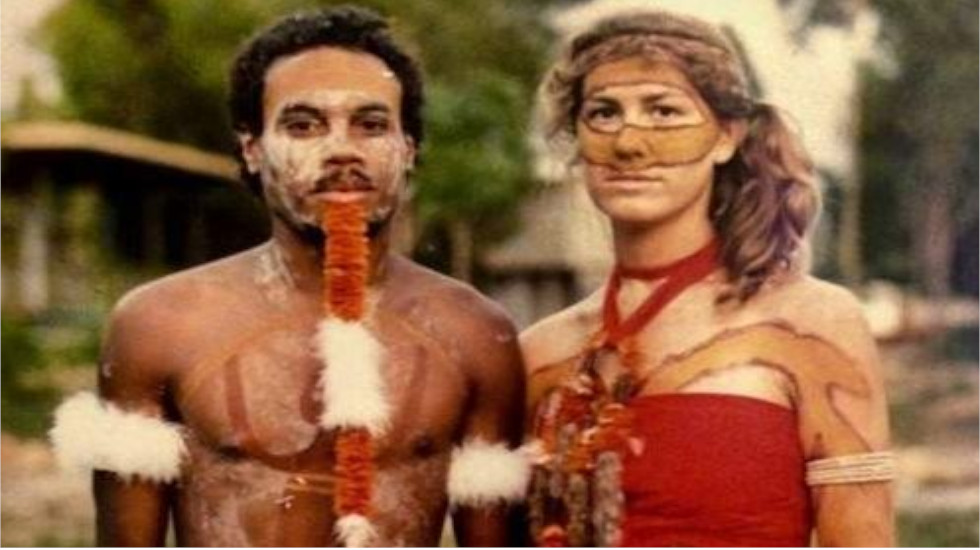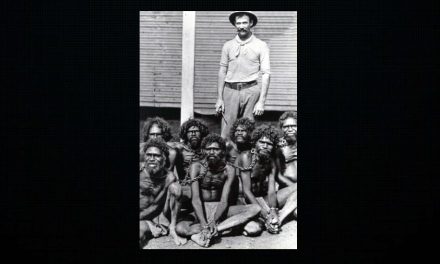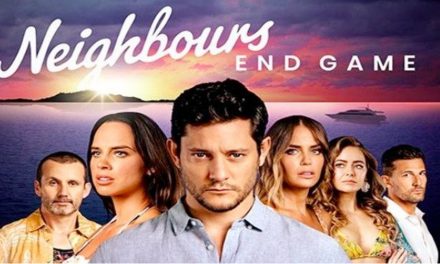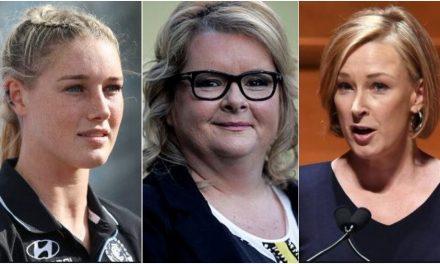“Can you love us beyond what we contribute to you? And can it be unconditional love?” asks Ziggy Ramo on “Black Thoughts”.
Some artists spend their entire careers waiting for the right moment to come. For others, that moment comes looking for them.
That’s exactly what happened to Australian hip-hop artist Ziggy Ramo when he turned on the TV earlier this year and first saw a black man gasping for life as a policeman drove a knee into his neck.
Ramo realised the moment was now. It was time to join the battle and articulate his experience as an indigenous Australian navigating the perils of a white man’s world.
The result is the most important Australian album you’ll hear this year, Ziggy Ramo’s “Black Thoughts.” It is a history lesson, a call to the barricades, a road map to justice and a devastating truth bomb that doesn’t avert your gaze for a single moment.
I recently questioned whether this generation of artists would create music to meet this moment, where racial justice and equality have set the streets alight cross the world.
Ziggy Ramo has delivered the soundtrack I was waiting for.
Take one listen to “Black Face”, Ramo’s riposte to a Perth mother who sent her kid to school in blackface dressed as West Coast AFL star Nic Naitanui so that she could shock “the PC Police”, and you are pinned to the wall by the rage and wisdom that is Ziggy’s M.O.
“See the difference between your children and Nic Nat
They can got school with their books in their backpack
Goin’ for the medal for the skin you paint black
When they get home they can shower cleanse their skin and that’s that
But we can never take our black off
Parents can never get back the children that was lost…”
As he chats with me on the phone from his home in Sydney, Ramo reveals “Black Thoughts” almost didn’t happen.
“It was a Tuesday night in early June and Spotify put “Black Thoughts” (the title track) into ‘A1 Hip-Hop’, the biggest Australian hip-hop playlist,” he says. “I never in my whole life thought I would see that song in that playlist.
“I thought if people are in support of this, I want to give them the opportunity to hear this album. The moment was right. This message is the platform, this album is the platform, this is what I want to speak on.”
“The album was out that Saturday.”
It was June 6, the day of Australia’s “Black Lives Matter” protests.
PLEASE HELP US CONTINUE TO THRIVE BY BECOMING AN OFFICIAL FOOTYOLOGY PATRON. JUST CLICK THIS LINK.
Ramo had recorded the album five years earlier, but was wary of the forces the record would unleash – and whether he was up to the task of wearing the bumps and bruises that were sure to come his way for delivering such a potent critique on Australia’s vexed history on race relations.
Australia, he figured, wasn’t ready. Ramo was also dealing with his own demons, fighting mental health battles that almost pulled him under.
He emerged stronger, wiser and determined to carve his own path in his own voice.
“In all honesty, there was no plan to ever put this album out, because I’d recorded it (in 2015) for me,” Ramo says. “Five years ago, if I’d put it out, would I have been able to navigate it the way I can now?
“Black is not a costume
Black is not a face
I’m an educated black man
I don’t know my place..”
Ziggy grew up in remote Arnhem Land in Australia’s top end. His parents are educators, and it’s no surprise that Ramo has embraced the family vocation.
The album is laced with the voices of indigenous rights heroes, from tent embassy pioneer Gary Foley to the late Charles Perkins as well as voices of bigotry from Australia’s white colonialist history such as mining magnate Lang Hancock.
The real power of “Black Thoughts” is in its refusal to shy away from the intergenerational trauma of indigenous Australians.
Whilst the gap in health outcomes, life expectancy and incarceration rates remain a wound on the nation’s psyche, any real justice for indigenous Australians is out of reach.
And for any of that to change, Aboriginal people need to not just to be spoken about, but to be heard and accepted for who they are.
“Can you love us beyond what we contribute to you? And can it be unconditional love?” Ramo asks. “I’m trying to build people’s capacity to unconditionally love us as humans, because the reality of what we have been put through, the majority of us are still in cycles of trauma.
“Because of that, we are going to do things you don’t want us to do – our substance abuse, our alcohol use, our inability to be best parents – because we’ve never been parented.
“You can respect me when I talk to you in a way that is eloquent and educated, but can you apply that same approach to people who aren’t as eloquent or privileged as me?”
Ziggy Ramo is inviting us to be partners on this journey. “Black Thoughts” is your ticket. It may be a rough ride for many Australians, but if we’re going to be the country we’d like to think we are, it’s a road we have to travel.












